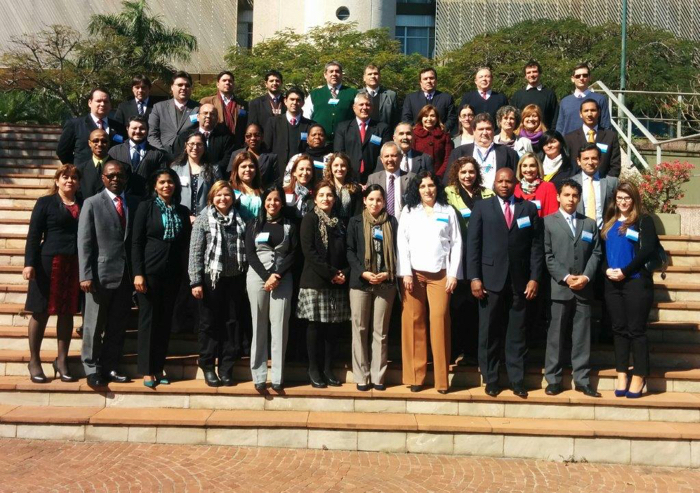
Seminar on Recent Developments in Payment and Settlement Systems
The Center for Latin American Monetary Studies (CEMLA) and the Deutsche Bundesbank held in the Seminar on Recent Developments in Payment and Settlement Systems, under the auspices of the Central Bank of Paraguay in Asuncion from July 21 to 23, 2015. The seminar was attended by 41 participants from 14 national central banks of Latin America and the Caribbean.
The seminar provided a platform for representatives of the participating central banks to raise issues of common interest, recent developments and potential challenges related to current and future functioning of payment systems and the various financial market infrastructures. Among the most discussed topics, it was noted that the region has seen significant progress in modernizing and strengthening legal and operational of the national financial infrastructure, leveraging from available technology to implement more safe and efficient systems.
The reform process has been accompanied by an increasingly intensive central bank's role as a catalyst, but also as a regulator and overseer of those systems. In fact, it was noted that although the oversight function is stablished, with main focus in safety and efficiency aspects, and in the case of retail payments promoting a competitive and inclusive development, there is not a single model, so experience-sharing becomes important to face common problems within the region. Moreover, it was observed that even though in some countries there is a clear separation of the oversight function between central banks and financial supervisory bodies, it can be concluded that greater involvement and coordination of the central bank with the various relevant authorities will be relevant in light of the formers' key role in ensuring the smooth functioning of the financial system.
Another widely discussed issue has to do with the scope and objectives of oversight to foster the proper functioning and development of the financial infrastructure nowadays. For example, the Seminar led to the conclusion that safety is the priority for central banks in the field of interbank funds transfer systems and generally in the systemically important payment systems, because of its importance for the proper implementation of the monetary policy and due to the interaction of these systems with the provision of liquidity and the stability of the financial system in general. However, it was also found that more and more central banks are becoming active in the retail landscape due to the dynamics that technology has brought to this market, without mentioning the importance of having more accessible and inclusive financial systems in Latin America and the Caribbean. This new context allows to anticipate that central banks will be demanded to take actions to ensure a balance of safety and efficiency in retail payments, for instance, to increasing financial inclusion at regional and international level.
The Seminar also served as a platform to widely know about the context in which the payment systems and financial market infrastructures are developed in the European context. It was highlighted, for example, the launch of the new Target 2-Securities which will make securities clearing and settlement processes more efficient across borders inside and outside the European Union.
Finally, as part of the conclusions of the Seminar, it was noted the need to promote dialogue between central banks in the region to analyze and digest the implications of adopting standards and best practices that are emerging in the context of the Committee on Payment and Market Infrastructures (CPMI) and other international initiatives.

